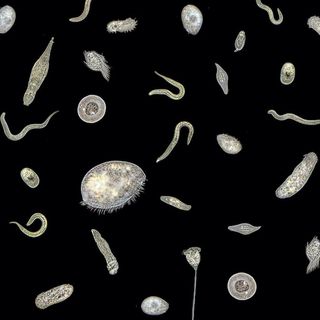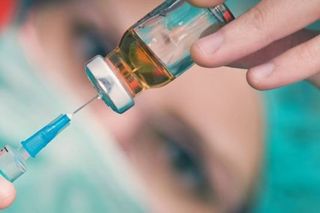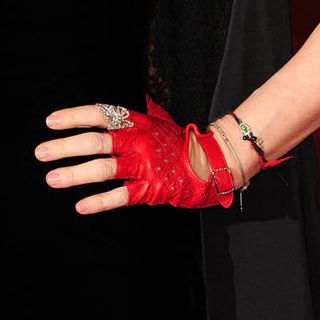
Cost, Side Effects and Influence on Teens’ Sex Lives Keep Parents Wary of HPV Vaccine
Doctors have and always will recommend it.

A recent study by SRL Diagnostics, an India-based chain of pathology and radiology laboratories, reported women aged 31 to 35 have a 47% chance of contracting HPV, while those between 16 and 30, have a 30% chance.
HPV, or human papillomavirus, like the name suggests, is a virus that can spread through skin-to-skin contact or through sexual activity. An infection can cause cellular changes that later develop into cancer, primarily cervical cancer, in women.
Currently, it is the second-leading cause of cancer deaths among women in India, and globally, it accounts for one-third of women’s cancer deaths. For this reason, the HPV vaccine is promoted more to girls and women, though boys and men can avail of it, too. HPV infections can, though rarely, lead to penile cancer in men.
In order to prevent infections from HPV, and lower rates of cervical cancer, the United States introduced the HPV vaccine in 2006. Their national public health institute, the Center for Disease Control and Prevention (CDC) recommends that preteens, both boys and girls, get it — the idea is to get it before the initiation of any kind of sexual activity. However, in India, the government’s vaccination program has made taking the vaccine optional, leaving parents with little guidance as to whether they should vaccinate their own children or not.
According to the CDC, the HPV is a sexually transmitted infection that nearly every sexually active, unvaccinated person will contract at some point in their life — but likely will never show symptoms.
While some strains of HPV merely cause genital warts, cervical and anal cancer, others can also lead to throat, vaginal and vulva cancer.
Therefore, the CDC recommends girls and boys age 11 or 12 receive the HPV vaccine — a course of two shots if you begin before age 15, and three shots for those starting the vaccine between ages 15 and 26.
“However, the idea is to get it done as early as possible, which is why we’ve been fighting for its inclusion in the Universal Immunization Programme for a pediatric age group,” says gynecologist Dr Komal Sahay from Mumbai’s Mamta Maternity Home.
When given at the recommended age, the HPV vaccine can prevent 90% of HPV-related cancers, according to the CDC. The vaccine is about 97% effective in preventing those cancers, but protection decreases as age of vaccination increases, the CDC adds. Since the vaccines’ introduction, US has recorded a 29% decrease in the number of cases of cervical cancer.
Related on The Swaddle:
More Evidence that HPV Vaccine Is Critical to Preventing Cervical Cancer
However, in India, without a mandate or recommendation, parents are slow to consent to the vaccine. “Only 50 to 60% of parents will agree to get the vaccine for their children,” says Dr Sahay. “Most don’t agree to because they don’t understand why it needs to be given before children are sexually active. They worry if it will promote sexual promiscuity and their teens’ future sexual encounters.”
However, studies have shown that making the HPV vaccine affordable and available and making teens more aware of its benefits does not lead them to have more sex.
Rashmi Shetty, mother of a 11-year-old girl, from Mumbai, says, “Nobody in my generation or my mother’s had had the vaccine. There’s no history of cancer in the family and, if it has been made an optional vaccine by the government, I think I shouldn’t worry about giving it.”
Another mother, Shubhada Vernekar, of a 10-year-old girl, from Mumbai, says, “I don’t have a problem giving it, but when pediatricians or gynecologists tend to make it sound like it is optional rather than give a strong recommendation, it gets confusing for me.”
In her case, she says, it wasn’t until she visited her own gynaecologist for a problem she had that she was recommended the vaccine. “My daughter’s paediatrician didn’t mention it ever. I’m still reading up about it, talking to more people before I can make a final decision,” she adds.
In spite of repeated assurances from doctors and health care providers, and studies that prove the vaccine can prevent development of cancer, concern and confusion over side effects, high costs and its relative newness are other reasons that keep parents from availing of it.
As far as the cost is concerned, says Dr Sahay, the vaccine is administered in two to three sittings (depending on age), each of which costs Rs 2,000 to Rs 3,000. It adds up to push away even those who are interested, she says.
Related on The Swaddle:
Give India The HPV Vaccine!
Among those who can afford it, the awareness about the vaccine is quite low, per a study by doctors from Delhi’s Maulana Azad Medical College.
Their survey in Eastern India among educated urban men and women, with at least one girl child and belonging to a middle or high socio-economic group, revealed that 72% had never heard of HPV. Only 46% of parents were in favor of vaccinating their daughters against a sexually transmitted infection; however, after going through a brief information sheet about the HPV vaccine, 80% agreed to vaccination. The study did not explore parents’ beliefs about vaccinating sons.
The most common reason for not accepting the vaccine was uncertainty about the safety of a new vaccine. The physician’s recommendation was found to be the most important factor influencing their decision, the study reported.
“Cervical cancer is slow-growing. People think, to prevent tumors, a vaccine will need to be 100% effective for at least 15 years and since the vaccine hasn’t been around that long, parents always ask if it will need to be re-administered in women later on in life,” says Dr Sahay. “This uncertainty also keeps them from getting their children vaccinated.”
Side effects are another concern. In Dr Madhumita Bose’s Mumbai-based clinic, Prabhoo Orthopedic and Maternity Home, five out of 10 parents will backtrack after learning about them, she says. As per the CDC, side effects include hives, swelling of the face, dizziness, weakness or difficulty breathing. But online reports of more serious health consequences related to the vaccine leave parents skittish.
“But there have been reports about serious health consequences as well that parents read up online and are therefore scared to approach doctors for to administer the vaccine,” she says.
Related on The Swaddle:
Dr Bose points to the 2010 horror story of an HPV vaccine trial in Andhra Pradesh and Gujarat led by the NGO PATH, with support from the Indian Council of Medical Research, that gained infamy from the deaths of four tribal girls involved. It was later revealed the trial was rife with malpractice — for instance, the girls were already malnourished and weak– and it has not been proven the vaccine itself was responsible for the deaths. Nevertheless, it created a negative impression in people’s minds, says Dr Bose.
“There are these reports of side effects, very bad side effects but all anecdotal. I couldn’t find any scientific research indicating serious adverse side effects, so it all boils down to what the pediatrician and gynecologists recommend,” says Shetty.
And that recommendation seems to be: get it. “There is a vaccine to prevent cervical cancer, unlike others that may have painful screening tests once cancer has already developed. If there is a way to prevent it, why not take it?” Dr Bose says. “That’s something we’ll always recommend, but it all boils down to what the parents want.”
Anubhuti Matta is an associate editor with The Swaddle. When not at work, she's busy pursuing kathak, reading books on and by women in the Middle East or making dresses out of Indian prints.
Related


What’s It Like To Live With: a Partner With a Bipolar Disorder
